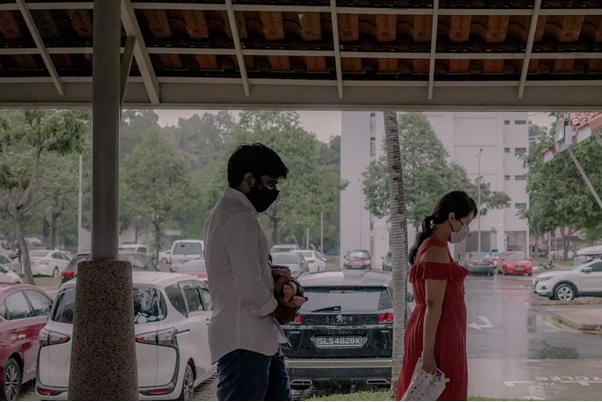Families For Life | Is It Just The Baby Blues or Depression
Photos taken in collaboration with Ang Wei Ming
Are those feelings of guilt, shame and sadness after you’ve given birth a sign of depression or simply a case of baby blues?
Having the "baby blues" after giving birth is very common. It usually starts the week after you’ve given birth and stops by the time your baby is around 10 days old. These are all normal feelings caused by hormonal changes as your body adjusts to not being pregnant anymore.
But they should not be confused with postnatal depression (PND), sometimes referred to as post-partum depression. You don't need treatment for baby blues, but if the low feelings persist beyond the first two weeks, it will be helpful to have your symptoms assessed by a professional.
Unlike baby blues, PND is a mental health condition that's unlikely to get better without any help.
Postnatal depression can be described as having feelings of sadness, hopelessness, guilt or self-blame for weeks or months after giving birth. It often develops within the first few months after giving birth, particularly in the first five weeks, but can also start at any time during the first year.
These feelings can suddenly creep up or might even have been with you during pregnancy – not lifting even after your child was born.
The signs and symptoms of PND, such as feeling emotional, irrational, irritable, touchy, or anxious, or perhaps bursting into tears for no apparent reason, differ for every mum.
If these symptoms occur on most days and they don't get better, it could be PND.
Women suffering from PND often think of themselves as weak or abnormal, but the truth is, it's common, affecting one in 10 women who have recently delivered.
Not being able to do certain things as a new mum may lead to feelings of guilt and anxiety, shared Karen Tan, theatre actress and patient advocate, at the Temasek Shophouse Conversation on "The First 1,000 Days – Maternal and Child Wellness", which took place on June 7, 2021.
The mother of two, who overcame the challenges of PND after giving birth to her two children, also raised the issue of "blame culture", for example, putting fault on the mother if she is unable to breastfeed.
And the thing about PND is that it can develop gradually, and afflict those who are not first-time mothers.
Ms Tan added: “You can be a second, third, fourth time mother and wake up one morning and realise that you can’t cope with this baby.”
The good news is that postnatal depression can be treated with the right care and support, and most women will make a full recovery – as long as they're willing to ask for help.
Depression can make you want to hide from the world and have you feeling like you don't want to do anything at all.
But it is important to take care of yourself, even if it's in talking to someone you trust about your feelings, such as your partner, family or a friend. If you find it difficult to talk about your thoughts and feelings, you could write down what you want to say first.
The important thing is to let someone know so that you can get the right help as soon as possible.

Recognise that it’s okay to be feeling this way and that you shouldn’t feel bad about needing help.
Dr Ho Yiling, Clinical Psychologist with the KK Women’s and Children’s Hospital, who was also speaking at the same session as Ms Tan, said that mothers who are struggling need to know that it’s okay to not be coping and to seek help from friends, workplaces or community agencies.
What well-meaning friends should not do is dismiss the feelings of new mums as something that will definitely go away on its own, or tell them to "just snap out of it", as these comments may add on to the mental burden these mothers are already grappling with.
In conclusion, Ms Tan emphasised that we need to learn to have empathy towards women with PND, saying: “It starts with mothers who have had depression reaching out to other mothers to say it's okay – and that passes on."